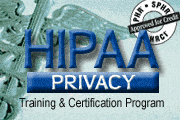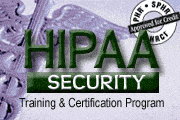HIPAA Compliance Requirements
What Is HIPAA?
HIPAA stands for the Health Insurance Portability and Accountability Act. It's a federal law enacted in 1996 in the United States, primarily aimed at protecting the privacy and security of individuals' health information.
What Are The Basic HIPAA Compliance Rules?
Compliance with HIPAA regulations is mandatory for covered entities and their business associates, and failure to comply can result in significant penalties. These include:
- Privacy Rule:
This rule sets standards for how protected health information (PHI) can be used and disclosed by covered entities, such as healthcare providers, health plans, and healthcare clearinghouses. It gives patients control over their health information and outlines the circumstances under which it can be shared.
- Security Rule:
The Security Rule establishes national standards for the security of electronic protected health information (ePHI). It requires covered entities to implement certain safeguards to protect the confidentiality, integrity, and availability of ePHI. - Transactions and Code Sets Rule:
This rule sets standards for electronic healthcare transactions, such as claims, remittance advice, and eligibility inquiries, to ensure they are conducted securely and efficiently. - Unique Identifiers Rule:
This rule establishes standard identifiers for healthcare providers, health plans, employers, and individuals to use in electronic transactions. - Enforcement Rule:
HIPAA includes provisions for enforcing its regulations, including penalties for violations and procedures for investigations and hearings.
HIPAA is designed to provide patients with greater control over their health information, promote the efficient flow of healthcare information, and ensure the security and confidentiality of electronic health records. Compliance with HIPAA regulations is mandatory for covered entities and their business associates, and failure to comply can result in significant penalties.
What Are The Key Concerns / Most Difficult Part Of HIPAA Administration?
HIPAA (Health Insurance Portability and Accountability Act) administration can present several challenges and key concerns for healthcare organizations. Some of the most difficult parts include:
- Complexity of Regulations:
HIPAA regulations are extensive and can be complex, requiring healthcare organizations to invest significant time and resources into understanding and implementing them effectively. - Privacy and Security Compliance:
Ensuring compliance with HIPAA's Privacy Rule and Security Rule is a major challenge. This includes safeguarding protected health information (PHI) against unauthorized access, ensuring secure transmission of PHI, and implementing appropriate administrative, physical, and technical safeguards.
- Risk Assessment and Management:
Conducting comprehensive risk assessments to identify vulnerabilities and risks to PHI can be challenging. Healthcare organizations must continuously monitor and manage these risks to prevent data breaches and comply with HIPAA requirements. - Employee Training and Awareness:
HIPAA requires healthcare organizations to provide regular training to employees on privacy and security policies and procedures. Ensuring that all employees understand their responsibilities and comply with HIPAA requirements can be difficult, especially in large organizations with high turnover rates. - Business Associate Agreements (BAAs):
Healthcare organizations must enter into BAAs with vendors and business associates who have access to PHI. Managing these agreements, ensuring compliance with HIPAA requirements, and monitoring the activities of business associates can be challenging. - Breach Notification:
HIPAA requires healthcare organizations to promptly notify affected individuals and regulatory authorities in the event of a data breach involving PHI. Developing and implementing a comprehensive breach response plan can be challenging, as it requires coordination across multiple departments and stakeholders. - Audits and Enforcement:
Healthcare organizations are subject to audits by the Office for Civil Rights (OCR) to assess compliance with HIPAA requirements. Ensuring readiness for audits and responding to OCR inquiries can be time-consuming and resource-intensive.
Addressing these challenges requires a coordinated effort involving leadership commitment, dedicated resources, ongoing training and education, robust policies and procedures, and a culture of compliance within the organization.



